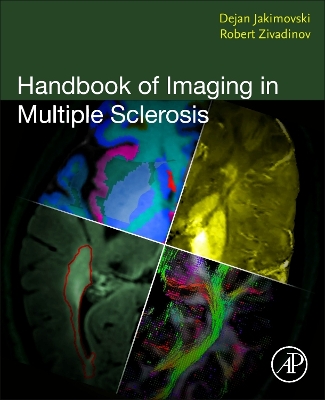Internet of Things and Machine Learning for Type I and Type II Diabetes
 -10%
portes grátis
-10%
portes grátis
Internet of Things and Machine Learning for Type I and Type II Diabetes
Use cases
Pani, Subhendu Kumar; Tse, Gary; Susilo, Willy; Dash, Sujata; Yung Bernard, Cheung Man
Elsevier - Health Sciences Division
07/2024
448
Mole
Inglês
9780323956864
15 a 20 dias
Descrição não disponível.
Section 1: Diagnosis
1. An Intelligent Diagnostic approach for diabetes Using rule-based Machine Learning techniques
2. Ensemble Sparse Intelligent Mining Techniques for Diabetes Diagnosis
3. Detection of Diabetic Retinopathy Using Neural Networks
4. An Intelligent Remote Diagnostic Approach for Diabetes Using Machine Learning Techniques
5. Diagnosis of Diabetic Retinopathy in Retinal Fundus Images Using Machine Learning and Deep Learning Models
6. Diagnosis of Diabetes Mellitus using Deep Learning Techniques and Big Data
Section 2: Glucose monitoring
7. IoT and Machine Learning for Management of Diabetes Mellitus
8. Prediction of glucose concentration in type 1 diabetes patients based on Machine learning techniques
9. ML-Based PCA Methods to Diagnose Statistical Distribution of Blood Glucose Levels of Diabetic Patients
Section 3: Prediction of complications and risk stratification
10. Overview of New trends on deep learning models for diabetes risk prediction
11. Clinical applications of deep learning in diabetes and its enhancements with future predictions
12. Feature Classification and Extraction of Medical Data Related to Diabetes Using Machine Learning Techniques: A Review
13. ML-based predictive model for type 2 diabetes mellitus using genetic and clinical data
14. Applications of IoT and data mining techniques for diabetes monitoring
15. Decision-making System for the Prediction of Type II Diabetes Using Data Balancing and Machine Learning Techniques
16. Comparative Analysis of Machine Learning Tools in Diabetes Prediction
17. Data Analytic models of patients dependent on insulin treatment
18. Prediction of Diabetes using Hybridization of Radial Basis Function Network and Differential Evaluation based Optimization Technique
19. An Overview of New Trends On Deep Learning Models For Diabetes Risk Prediction
Section 4: Dialysis
20. Progression and Identification of heart disease risk factors in diabetic patients from electronic health records
21. An Intelligent Fog Computing-based Diabetes Prediction System for Remote Healthcare Applications
22. Artificial intelligence approaches for risk stratification of diabetic kidney disease
23. Computational Methods for predicting the occurrence of cardiac autonomic neuropathy
24. Development of a Clinical Forecasting Model to Predict Comorbid Depression in Diabetes Patients and its Application in Policy Making for Depression Screening
Section 5: Drug design and Treatment Response
25. Enhancing Diabetic Maculopathy Classification through a Synergistic Deep Learning Approach by Combining Convolutional Neural Networks, Transfer Learning, and Attention Mechanisms
26. Pharmacogenomics: the roles of genetic factors on treatment response and outcomes in diabetes
27. Predicting treatment response in diabetes: the roles of machine learning-based models
28. Antidiabetic Potential of Mangrove Plants: An Updated Review
1. An Intelligent Diagnostic approach for diabetes Using rule-based Machine Learning techniques
2. Ensemble Sparse Intelligent Mining Techniques for Diabetes Diagnosis
3. Detection of Diabetic Retinopathy Using Neural Networks
4. An Intelligent Remote Diagnostic Approach for Diabetes Using Machine Learning Techniques
5. Diagnosis of Diabetic Retinopathy in Retinal Fundus Images Using Machine Learning and Deep Learning Models
6. Diagnosis of Diabetes Mellitus using Deep Learning Techniques and Big Data
Section 2: Glucose monitoring
7. IoT and Machine Learning for Management of Diabetes Mellitus
8. Prediction of glucose concentration in type 1 diabetes patients based on Machine learning techniques
9. ML-Based PCA Methods to Diagnose Statistical Distribution of Blood Glucose Levels of Diabetic Patients
Section 3: Prediction of complications and risk stratification
10. Overview of New trends on deep learning models for diabetes risk prediction
11. Clinical applications of deep learning in diabetes and its enhancements with future predictions
12. Feature Classification and Extraction of Medical Data Related to Diabetes Using Machine Learning Techniques: A Review
13. ML-based predictive model for type 2 diabetes mellitus using genetic and clinical data
14. Applications of IoT and data mining techniques for diabetes monitoring
15. Decision-making System for the Prediction of Type II Diabetes Using Data Balancing and Machine Learning Techniques
16. Comparative Analysis of Machine Learning Tools in Diabetes Prediction
17. Data Analytic models of patients dependent on insulin treatment
18. Prediction of Diabetes using Hybridization of Radial Basis Function Network and Differential Evaluation based Optimization Technique
19. An Overview of New Trends On Deep Learning Models For Diabetes Risk Prediction
Section 4: Dialysis
20. Progression and Identification of heart disease risk factors in diabetic patients from electronic health records
21. An Intelligent Fog Computing-based Diabetes Prediction System for Remote Healthcare Applications
22. Artificial intelligence approaches for risk stratification of diabetic kidney disease
23. Computational Methods for predicting the occurrence of cardiac autonomic neuropathy
24. Development of a Clinical Forecasting Model to Predict Comorbid Depression in Diabetes Patients and its Application in Policy Making for Depression Screening
Section 5: Drug design and Treatment Response
25. Enhancing Diabetic Maculopathy Classification through a Synergistic Deep Learning Approach by Combining Convolutional Neural Networks, Transfer Learning, and Attention Mechanisms
26. Pharmacogenomics: the roles of genetic factors on treatment response and outcomes in diabetes
27. Predicting treatment response in diabetes: the roles of machine learning-based models
28. Antidiabetic Potential of Mangrove Plants: An Updated Review
Este título pertence ao(s) assunto(s) indicados(s). Para ver outros títulos clique no assunto desejado.
<p>Diabetes; Mellitus; Diabetic Complications; disease prediction models; biomedical informatics; artificial intelligence; IoT; big data; machine learning</p>
Section 1: Diagnosis
1. An Intelligent Diagnostic approach for diabetes Using rule-based Machine Learning techniques
2. Ensemble Sparse Intelligent Mining Techniques for Diabetes Diagnosis
3. Detection of Diabetic Retinopathy Using Neural Networks
4. An Intelligent Remote Diagnostic Approach for Diabetes Using Machine Learning Techniques
5. Diagnosis of Diabetic Retinopathy in Retinal Fundus Images Using Machine Learning and Deep Learning Models
6. Diagnosis of Diabetes Mellitus using Deep Learning Techniques and Big Data
Section 2: Glucose monitoring
7. IoT and Machine Learning for Management of Diabetes Mellitus
8. Prediction of glucose concentration in type 1 diabetes patients based on Machine learning techniques
9. ML-Based PCA Methods to Diagnose Statistical Distribution of Blood Glucose Levels of Diabetic Patients
Section 3: Prediction of complications and risk stratification
10. Overview of New trends on deep learning models for diabetes risk prediction
11. Clinical applications of deep learning in diabetes and its enhancements with future predictions
12. Feature Classification and Extraction of Medical Data Related to Diabetes Using Machine Learning Techniques: A Review
13. ML-based predictive model for type 2 diabetes mellitus using genetic and clinical data
14. Applications of IoT and data mining techniques for diabetes monitoring
15. Decision-making System for the Prediction of Type II Diabetes Using Data Balancing and Machine Learning Techniques
16. Comparative Analysis of Machine Learning Tools in Diabetes Prediction
17. Data Analytic models of patients dependent on insulin treatment
18. Prediction of Diabetes using Hybridization of Radial Basis Function Network and Differential Evaluation based Optimization Technique
19. An Overview of New Trends On Deep Learning Models For Diabetes Risk Prediction
Section 4: Dialysis
20. Progression and Identification of heart disease risk factors in diabetic patients from electronic health records
21. An Intelligent Fog Computing-based Diabetes Prediction System for Remote Healthcare Applications
22. Artificial intelligence approaches for risk stratification of diabetic kidney disease
23. Computational Methods for predicting the occurrence of cardiac autonomic neuropathy
24. Development of a Clinical Forecasting Model to Predict Comorbid Depression in Diabetes Patients and its Application in Policy Making for Depression Screening
Section 5: Drug design and Treatment Response
25. Enhancing Diabetic Maculopathy Classification through a Synergistic Deep Learning Approach by Combining Convolutional Neural Networks, Transfer Learning, and Attention Mechanisms
26. Pharmacogenomics: the roles of genetic factors on treatment response and outcomes in diabetes
27. Predicting treatment response in diabetes: the roles of machine learning-based models
28. Antidiabetic Potential of Mangrove Plants: An Updated Review
1. An Intelligent Diagnostic approach for diabetes Using rule-based Machine Learning techniques
2. Ensemble Sparse Intelligent Mining Techniques for Diabetes Diagnosis
3. Detection of Diabetic Retinopathy Using Neural Networks
4. An Intelligent Remote Diagnostic Approach for Diabetes Using Machine Learning Techniques
5. Diagnosis of Diabetic Retinopathy in Retinal Fundus Images Using Machine Learning and Deep Learning Models
6. Diagnosis of Diabetes Mellitus using Deep Learning Techniques and Big Data
Section 2: Glucose monitoring
7. IoT and Machine Learning for Management of Diabetes Mellitus
8. Prediction of glucose concentration in type 1 diabetes patients based on Machine learning techniques
9. ML-Based PCA Methods to Diagnose Statistical Distribution of Blood Glucose Levels of Diabetic Patients
Section 3: Prediction of complications and risk stratification
10. Overview of New trends on deep learning models for diabetes risk prediction
11. Clinical applications of deep learning in diabetes and its enhancements with future predictions
12. Feature Classification and Extraction of Medical Data Related to Diabetes Using Machine Learning Techniques: A Review
13. ML-based predictive model for type 2 diabetes mellitus using genetic and clinical data
14. Applications of IoT and data mining techniques for diabetes monitoring
15. Decision-making System for the Prediction of Type II Diabetes Using Data Balancing and Machine Learning Techniques
16. Comparative Analysis of Machine Learning Tools in Diabetes Prediction
17. Data Analytic models of patients dependent on insulin treatment
18. Prediction of Diabetes using Hybridization of Radial Basis Function Network and Differential Evaluation based Optimization Technique
19. An Overview of New Trends On Deep Learning Models For Diabetes Risk Prediction
Section 4: Dialysis
20. Progression and Identification of heart disease risk factors in diabetic patients from electronic health records
21. An Intelligent Fog Computing-based Diabetes Prediction System for Remote Healthcare Applications
22. Artificial intelligence approaches for risk stratification of diabetic kidney disease
23. Computational Methods for predicting the occurrence of cardiac autonomic neuropathy
24. Development of a Clinical Forecasting Model to Predict Comorbid Depression in Diabetes Patients and its Application in Policy Making for Depression Screening
Section 5: Drug design and Treatment Response
25. Enhancing Diabetic Maculopathy Classification through a Synergistic Deep Learning Approach by Combining Convolutional Neural Networks, Transfer Learning, and Attention Mechanisms
26. Pharmacogenomics: the roles of genetic factors on treatment response and outcomes in diabetes
27. Predicting treatment response in diabetes: the roles of machine learning-based models
28. Antidiabetic Potential of Mangrove Plants: An Updated Review
Este título pertence ao(s) assunto(s) indicados(s). Para ver outros títulos clique no assunto desejado.







